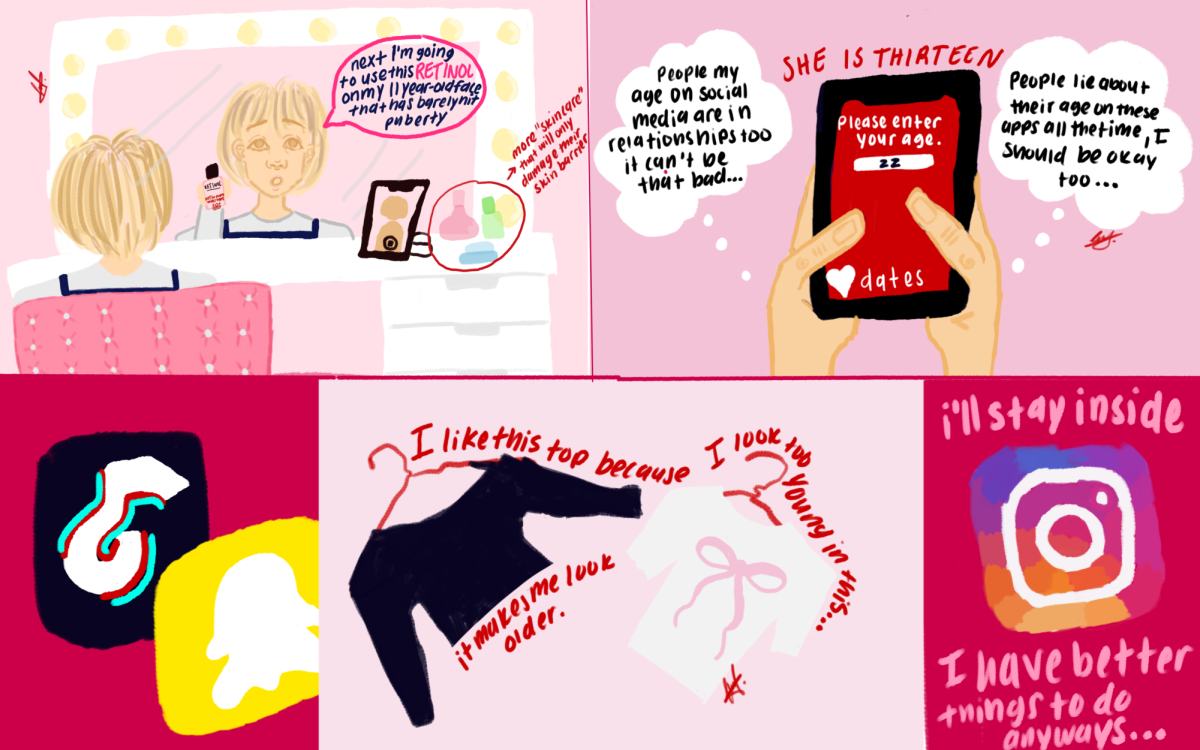
Let’s open up the conversation: period talk. Ladies, it is the time of the month we all despise, but it would be much simpler if we did not have to lug a sanitary product with us every time we had to use the restroom at school. Numerous issues will dissipate if pads and tampons are more accessible in school restrooms.
New York, California and Illinois are the only three states requiring school restrooms to be equipped with free menstrual products to students in grades six through twelve. In the rest of the country, however, millions of girls have to worry if they will have access to pads and tampons, instead of focusing on their education. Attainability of pads and tampons should be considered a necessity, not a luxury.
Although access to female sanitary products is a major obstacle in developing countries, a similar issue arises close to home. Even though the United States is a developed country with localized access to an array of products at any convenience store, approximately 12.3% of Americans live below the poverty line, according to the U.S. Census Bureau in 2017. Period poverty, or the lack of access to menstrual products due to financial limitations, is a real, heightening issue for low-income students all across America.
The “tampon tax,” or sales tax on feminine products, is quite unfair since pads and tampons are considered a necessity, and women are the only ones who have to pay the price. In the long run, these taxes add up, furthering the idea of the “pink tax,” in which women pay more than men for gender-specific commodities. Fifteen states have already lifted the tampon tax, and the rest of the country should follow suit.
When females do not have convenient access to feminine hygiene, their period can become a distraction. This distraction can become even more harmful to young women in school, as it may result in them missing out on their education. According to the feminine hygiene company, Always, “nearly 1 in 5 girls in the U.S. have either left school early or missed school entirely because they did not have access to period products.”
Girls should not have to remember to pack pads and tampons in their backpacks, especially when they do not know the next time they will menstruate. When a menstruating girl forgets to pack these products, she is pressured to ask a friend, go to the nurse or leave school—perhaps causing her embarrassment.
However, relying on friends or nurses for feminine products is not the solution. Asking friends can be unpredictable, and going to the nurse’s office multiple times a day, just for a pad or tampon, is highly unreasonable.
According to the FDA, band-aids, pads and tampons are listed as medical devices. However, while band-aids are not expected to be brought into class, feminine products are. Why are girls expected to bring in pads and tampons when their period is just as unpredictable as a paper cut?
Additionally, a tremendous amount of awkwardness arises over the natural cycle of a period. When girls go to the restroom during class to put on a pad or tampon, they either have to place their product discreetly in their pocket or jacket or bring their entire backpack with them. Accessible female hygiene is likely to reduce both distractions and embarrassment for students.
The stigma that surrounds periods must go. Through open discussion and education, pads and tampons should be considered commonplace school restrooms. With free sanitary products available to all females at school, the pressure to be prepared for a period will be reduced, embarrassment will be diminished and time in the classroom will be maximized.
This story was originally published in the October 2019 Eagle Eye Print Edition.










